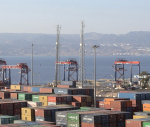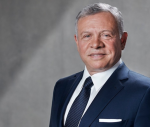You are here
Does Ukraine have a future?
Jul 18,2014 - Last updated at Jul 18,2014
When one sets out to answer the riddle about the future of Ukraine the answers that come depend to some extent on how far back one goes, but even if history casts a long shadow it is the events of the last half year, shaped by young demonstrators, mobs and militias, that dominate the narrative.
One can go back to the time of Rus’ when in the tenth century, the Orthodox Church made Ukraine and Russia one. Or one can go back to the Soviet Union of which Ukraine was an important part.
One can go back to the end of the Soviet Union when three men, including Boris Yelstin, had a drunken cookout in the woods and decided to give Ukraine its independence.
One can go back to the Orange Revolution 10 years ago when true democracy won out only to be undermined by crude politicking and corruption.
Or one can go back to February this year when politically innocent protesters — rather like those in Egypt — gathered in large numbers in Kiev’s main square — only to be out-manoeuvred by fascist — inclined militants who precipitated the final, violent, showdown that ousted a democratic elected president, Viktor Yanukovych, who could have been voted out next January when his legal term expired. As in Egypt the hardliners markedly increased their influence, the last thing the “innocent” expected.
As for the Americans and the Europeans they have worked behind the scenes to install a government of their own persuasion.
The result was an interim government that called elections that led to electing a president, Petro Poroshenko, a man who earned his spurs amassing a fortune from chocolate making — a great grooming for running a country.
But the government has an overdose of quasi-fascists who have come from the ranks of the ultra-nationalist Svoboda Party that won only 2 per cent of the vote in the June election. The vice president and three other ministers are Svoboda people including the prosecutor general.
Svoboda’s leader, Oleh Tyahnybok, once called for a nation purged of the “Moscow-Jewish mafia”. On March 18, Svoboda Parliamentarians beat the acting president of the Ukrainian State broadcaster, Oleksander Panteleymonov, trying to force him to sign a resignation letter because he decided to broadcast Crimea’s joining the Russian Federation ceremony in Moscow.
I have little time for Russian President Vladimir Putin, who orchestrated the succession of Crimea with a referendum that was given only two-week notice. (Compare this with the 18 months run up to the Scottish succession referendum) But I also have little time for the way the US and the EU have conducted their diplomacy in Ukraine. A full frontal attack on Yanukovych’s government over its last-minute refusal to take a path that would one day lead to EU membership was counterproductive.
Unless they make it absolutely clear that they don’t want to see Ukraine in NATO, that the Russian language is equal to Ukrainian and that there is devolution similar to Scotland in the UK today, their diplomacy will always look seriously tarnished.
The fact that this is what Putin wants to see should not be a reason for not embracing these precepts. The West has manoeuvred itself into a state of confrontation with Russia. Only Germany of the always-wise Chancellor Angel Merkel, supported by ex-chancellors Helmut Schmidt and Gerhard Schroder, the authors of the creation of Germany’s great economic power house, stand against the Western tide.
Now the battle for control of Russian-speaking territory rages with pro-Russia and pro-Kiev militias beginning to destroy parts of cities, as in Syria. On May 2, an organised pro-Kiev mob chased pro-Russian protesters into a building, setting it on fire. Some 40 people perished in the flames. Most Western nations turned a lazy eye. Now we see pro-Kiev and pro-Moscow militias precipitating the fleeing of thousands of refugees to Russia.
Yet the West dreams on. If Ukraine could not find stability and good, uncorrupt, selfless leaders with an uncompromised parliament in the years following the Orange Revolution, how can it now after all the turbulence and polarisation of this year’s events? The West does not have any more money than it did before to try and engineer Ukraine’s stability and growth.
The only way to keep Ukraine upright is for the West and Russia to reach out to each other — and to accept that mobs made up of young people who have little understanding of the complexities of life are not bodies that they should license or encourage.
Ukraine should be encouraged to pursue membership of the EU over the next decade, negotiate a favourable entry to Russia’s Eurasian Union and the West should loudly reject any plans for Ukraine’s NATO membership. Meanwhile, Poroshenko must sack his Svoboda-inclined ministers.
Otherwise it will be an impasse. The West won’t suffer. Neither will Russia. But Ukraine will.













